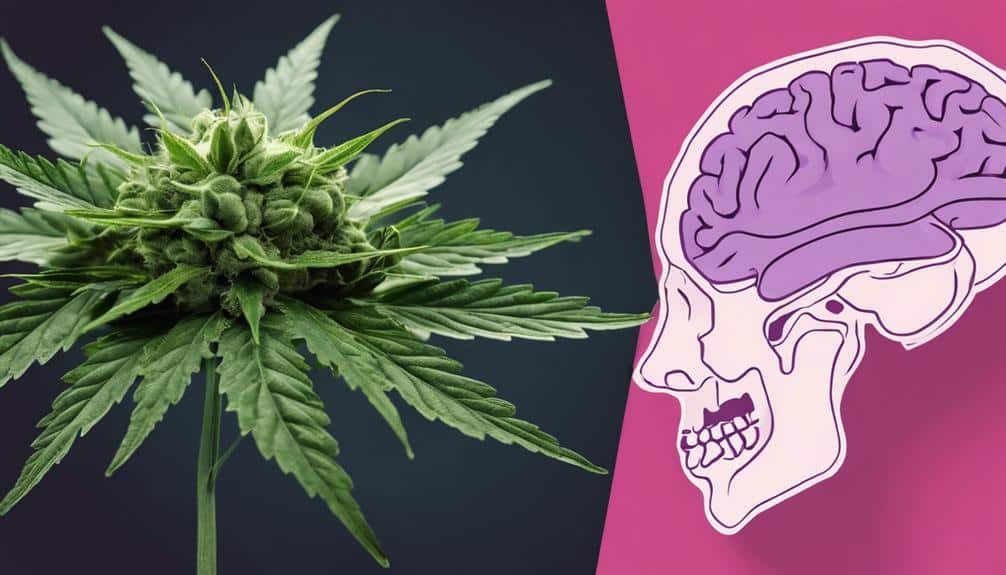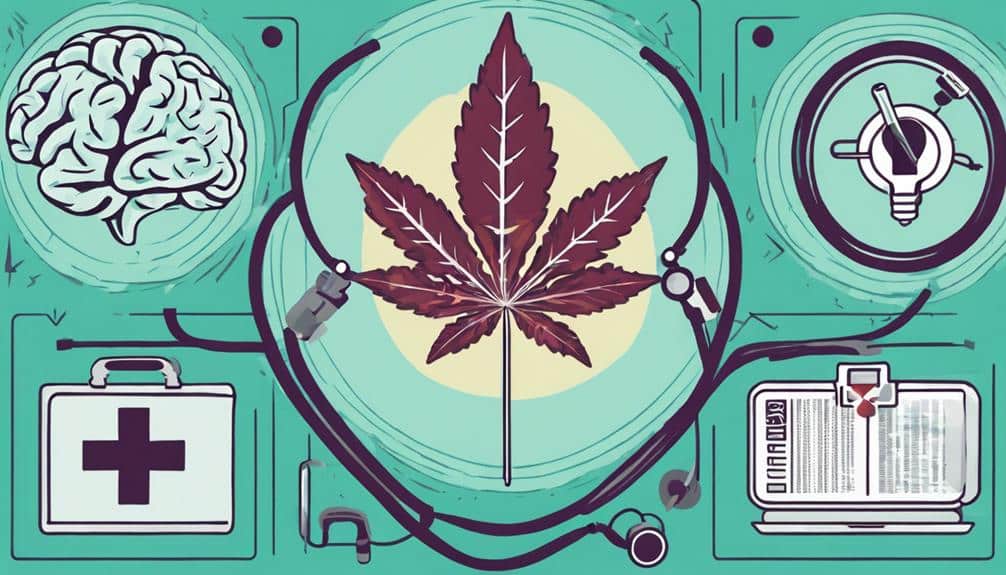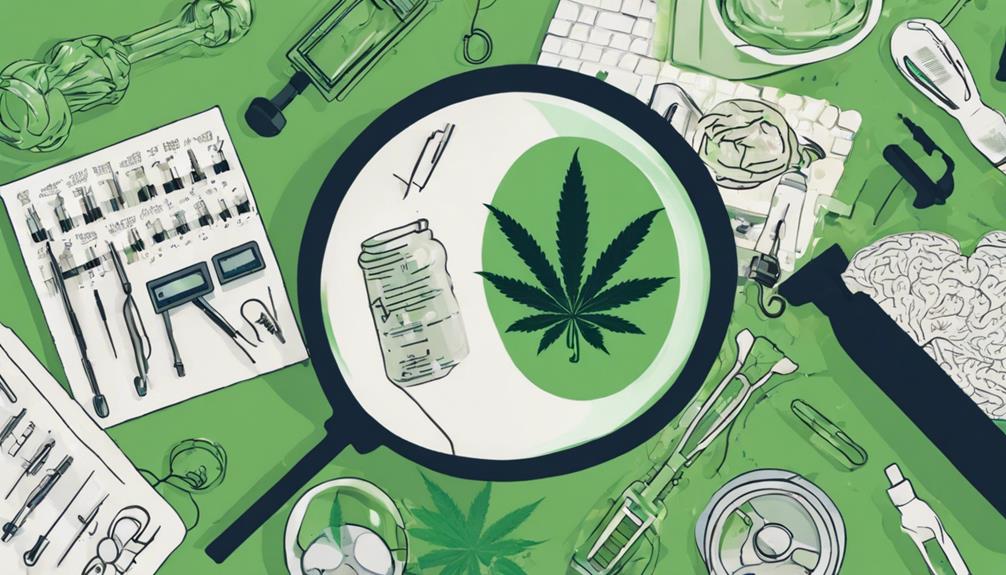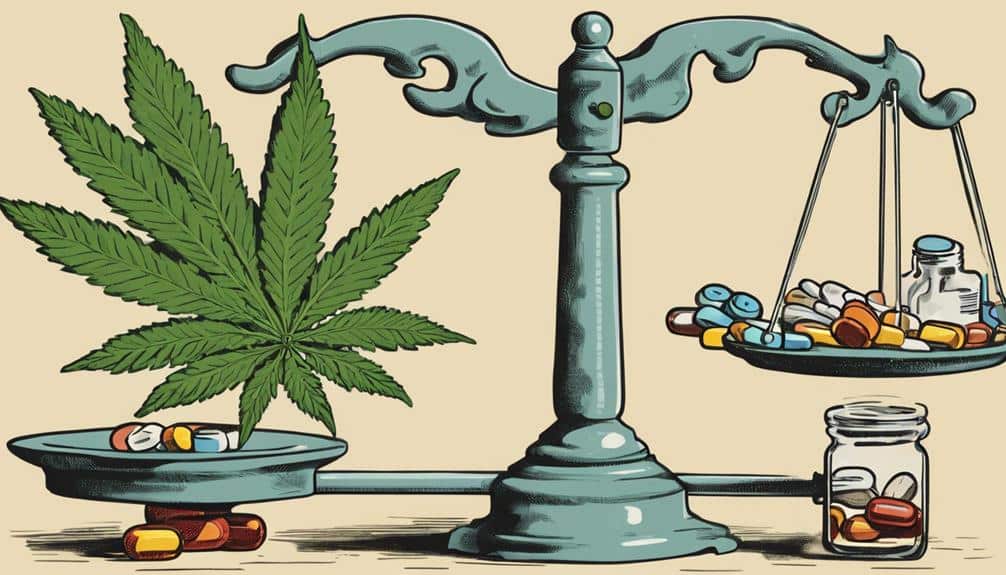Imagine a world where the chains of epilepsy are broken, and seizures are a thing of the past. This is the potential power of medical marijuana in controlling epilepsy symptoms. It’s not a magic bullet, but it’s a promising development that’s capturing global attention. The key element? A compound called Cannabidiol (CBD). Preliminary research suggests it’s effective in managing seizures, especially in treatment-resistant cases. However, like all good things, it comes with its caveats. Intrigued? Let’s explore this further.
Understanding Epilepsy

Epilepsy affects approximately 65 million individuals globally, making it one of the most common neurological disorders. It is characterized by recurring seizures caused by sudden surges in electrical activity in the brain. Understanding epilepsy complexities and its seizure triggers is vital to assist others grappling with this disorder.
Seizure triggers vary significantly among individuals; common ones include lack of sleep, illness, stress, bright lights, and certain foods. Stress can be a powerful trigger – not just significant life stresses but also everyday ones that can lead to a seizure. That’s why effectively managing stress becomes an integral part of an individual’s epilepsy management plan.
To help someone with epilepsy, you need to be aware of these triggers and help implement strategies to avoid them. Encourage regular sleep patterns, balanced dieting and moderate exercise while advocating for stress management techniques such as mindfulness deep breathing exercises and yoga practices.
Conventional Treatments for Epilepsy
When it comes to managing epilepsy, multiple conventional treatments are available. These aim to control seizures, lessen their frequency and improve the quality of life. Treatment options range from medication and surgery to dietary therapy, each with its own advantages and drawbacks.
Antiepileptic drugs (AEDs) are often the first line of treatment. They work by altering electrical activity in the brain to reduce seizure frequency. However, side effects such as dizziness, fatigue, and weight gain can be bothersome, and they may not work for everyone.
Surgical intervention is another option typically reserved for severe cases where medication isn’t effective. It involves removing the area of the brain where seizures originate but remember that it’s a significant procedure with potential risks like memory issues.
Dietary therapies like the ketogenic diet can help control seizures in some patients, particularly children. It’s a strict regimen that requires careful planning and monitoring.
In addition to these treatments, alternative therapies like biofeedback acupuncture and yoga are gaining ground. While not primary treatments they can complement conventional options contributing to overall wellness.
What Is Medical Marijuana?

You’ve likely heard the term ‘medical marijuana’ floating around in health discussions but what exactly does it entail? Fundamentally medical marijuana refers to using the whole unprocessed marijuana plant or its basic extracts to treat symptoms of illness and other medical conditions. Its legalization status varies globally with some countries granting full legality while others only permit it strictly for medicinal purposes or prohibit it entirely.
The active chemical compounds in marijuana known as cannabinoids have a variety of therapeutic benefits. These include but aren’t limited to pain relief reduction in inflammation control of nausea and vomiting and a potential decrease in epileptic seizures.
It’s important to note that while the idea of using marijuana for medical purposes is gaining traction it’s not without controversy. Critics often cite concerns about potential addiction or misuse. However advocates argue that the therapeutic benefits particularly for conditions like epilepsy outweigh these risks.
In essence medical marijuana is a complex topic with fluctuating legalization status. It’s a tool in the medicinal arsenal that while contentious is proving its worth in symptom control for various diseases including epilepsy.
The Science Behind Medical Marijuana
Delving into the science behind medical marijuana understanding how it interacts with our bodies to produce its therapeutic effects is essential. The key lies in our body’s endocannabinoid system (ECS). This system maintains homeostasis or balance within the body comprising endocannabinoids receptors and enzymes working together.
Cannabinoid therapy specifically targets this system using phytocannabinoids compounds found in the cannabis plant to interact with the ECS. These phytocannabinoids like THC and CBD mimic endocannabinoids produced by our bodies binding to CB1 and CB2 receptors located in the brain and immune system respectively modulating their activity.
This interaction has a direct impact on seizure control by binding to CB1 receptors cannabinoids can help regulate excessive electrical activity in the brain leading to seizures. Additionally cannabinoids can also influence neurotransmitter release further aiding seizure control.
Medical Marijuana and Epilepsy: The Research

Diving into the realm of research it’s evident that medical marijuana’s role in managing epilepsy has been closely examined. Numerous clinical trials have been conducted to evaluate its neurological benefits each adding a new layer of insight to this intricate issue.
One of the most significant studies involved monitoring epilepsy patients who were provided with medical marijuana alongside their usual antiepileptic drugs. The results showed a noticeable decrease in seizure frequency especially among patients with treatment-resistant epilepsy offering proof of medical marijuana’s potential as an effective complementary treatment.
Further delving into the neurological benefits studies have discovered that active compounds in medical marijuana particularly cannabidiol (CBD) exhibit potential in reducing seizure frequency and severity. Notably CBD doesn’t induce the ‘high’ often linked with marijuana making it a more appealing choice for long-term use.
However like all medical treatments the use of medical marijuana isn’t without risks. Some side effects observed in clinical trials include drowsiness diarrhea and changes in appetite. Hence thoughtful consideration and discussion with a healthcare provider are essential before starting on this treatment path.
Advantages of Medical Marijuana for Epilepsy
Given the promising research surrounding medical marijuana and its impact on epilepsy it’s worth exploring the specific benefits it may offer.
Patient experiences have shown that medical marijuana can significantly reduce seizure frequency sometimes even achieving total seizure control improving not only patient quality of life but also their confidence and independence.
Professional recommendations also highlight the benefits of medical marijuana in managing other symptoms associated with epilepsy such as controlling accompanying anxiety and depression improving sleep quality and alleviating nausea associated with certain anti-epileptic drugs.
In addition, where traditional epilepsy medications have failed, medical marijuana has proven effective, providing an alternative treatment option for those with refractory epilepsy.
Lastly, medical marijuana can potentially minimize the use of traditional anti-epileptic drugs reducing the risk of experiencing their side effects. However this should always be done under the guidance of a healthcare professional.
Potential Side Effects and Risks

While medical marijuana offers notable benefits for epilepsy patients it’s essential to also consider its potential side effects and risks. The long-term effects of medical marijuana are still under study. Some users may experience changes in mood difficulty with memory and concentration or even dependency over time.
In addition dosage monitoring is necessary for effective and safe use. Too high a dose can result in short-term side effects such as dizziness dry mouth or even temporary paranoia while too low a dose may not fully realize medicinal benefits. Regular careful monitoring by a healthcare professional can help maintain an ideal balance.
Moreover potential interactions with other medications need to be considered as medical marijuana may amplify contradict or change the effects of other drugs taken by the patient. It’s essential to maintain open communication with your healthcare provider to ensure safe and effective treatment.
Legal Aspects of Medical Marijuana
Navigating through the legal terrain of medical marijuana can be as complex as deciphering its medical implications. Policy implications vary widely from state to state making it a tangled process for you to access this treatment option. Legislation continues to evolve yet public perception often lags behind further complicating matters.
Despite proven benefits for epilepsy patients, the legality of medical marijuana remains a complex puzzle. In some states it’s fully legal while others only allow it under severe medical conditions. Yet there are still regions where it’s criminalized. It’s essential for you to understand these nuances to avoid legal pitfalls.
But legal accessibility isn’t the end of the journey. Public perception plays a crucial role in the rollout of this treatment method. While some people recognize its therapeutic benefits others view it through a lens of stigma and misinformation affecting everything from policy creation to patient access.
In short while medical marijuana offers a promising solution for epilepsy patients, the legal landscape and public perception create barriers that may limit its access and utilization. Advocacy for clear thorough policies and education is key to overcoming these challenges.
Patient Testimonials and Case Studies

Exploring patient testimonials and case studies provides a compelling narrative to the use of medical marijuana for epilepsy. From these personal experiences we see a constant theme of transformation and relief underscoring the efficacy of this treatment approach.
One success story involves a young woman who after years of traditional treatments still battled with daily seizures. In desperation her family turned to medical marijuana which dramatically decreased her seizures enabling her to reclaim a quality of life she hadn’t experienced in years.
Aided by analytical tools case studies further augment these testimonials. A particular study examined the impact of cannabis-based treatments on 120 children and young adults with Dravet syndrome, a severe form of epilepsy. The group experienced a median reduction in monthly seizures by 39% compared to 13% reduction in the control group.
These narratives and studies don’t just tell us about the potential of medical marijuana they vividly illustrate the hope it brings to individuals and families grappling with epilepsy. Yet it’s also clear that more extensive research is needed to understand how best to harness this potential.
Future Research and Developments
Although patient feedback and case studies offer valuable insights we must look ahead to the next exciting steps in the field of medical cannabis for epilepsy. You as a part of this community play a significant role in driving these advancements.
Future studies aim to deepen our comprehension of how medical cannabis interacts with epilepsy exploring its potential as a new treatment. We’ll observe the development of more precise targeted therapies maximizing advantages while minimizing potential side effects.
This means safer alternative treatments for those you assist providing them with an improved quality of life.
We’re also working towards expanding our investigations. While medical cannabis has shown promise in controlling seizures we don’t yet fully understand its long-term effects or best dosage.
Your support can help guarantee this much-needed research continues and evolves.
Conclusion
You might be left wondering could medical marijuana be the missing piece in your epilepsy treatment puzzle? Research indicates it may well be. CBD, a compound in cannabis, has shown remarkable results in controlling seizures but remember that it’s not a magic bullet. Side effects exist legality varies and individual responses differ so stay tuned as science delves deeper there’s potential for groundbreaking discoveries potentially revolutionizing epilepsy treatment as we know it today.
If you’re curious about the potential benefits of medical marijuana for epilepsy why not reach out to professionals at Fells Point Cannabis Docs of Maryland? They’re more than happy to answer any questions you might have and guide you through the process. Give them a call at (410) 401-4200 or stop by for a visit. They’re there to help you navigate this new and exciting area of medical research.
